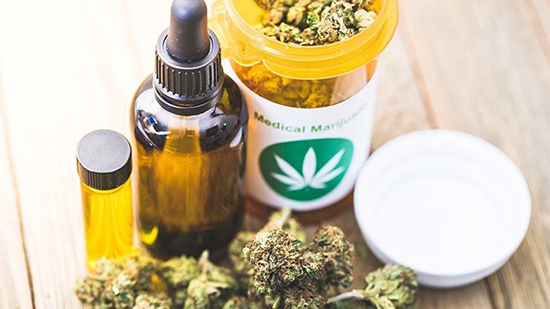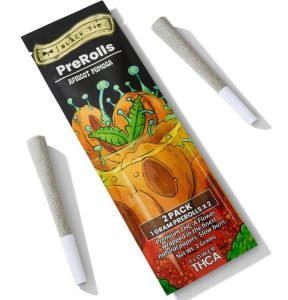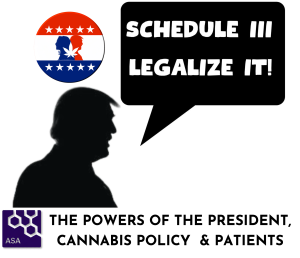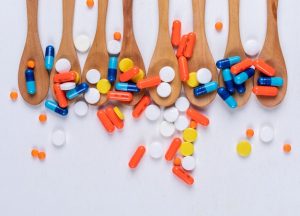Does CBD Come Out on Drug Tests?

Many sellers in the CBD market advertise their products as THC-free or 100% CBD, but relying solely on labels can lead to failed drug tests. CBD, or cannabidiol, became popular for its vast health benefits, but CBD products are still not recommended to pregnant and breastfeeding women. Why?
Because of THC (tetrahydrocannabinol), an active ingredient in marijuana that makes a person high, research shows that many companies that claim 100% best CBD oil or label it as THC-free often contain small amounts of THC. It is tricky to depend on the labeling to pass the drug test. So, what’s the solution? We have written down some relevant steps that will help you pass the drug test while using CBD, but before that, you must also read this useful information about cannabis.
What’s the Difference Between CBD, THC, Marijuana, and Hemp?
Cannabis plants contain the two most popular compounds: CBD (cannabidiol) and THC (tetrahydrocannabinol). Marijuana and hemp are two distinctive varieties of plants with different characteristics and uses.
THC is a psychoactive element, which means it can get you high associated with marijuana use. In contrast, CBD is non-psychoactive and does not induce intoxication, which is the main reason people use it for health benefits. Marijuana is a type of cannabis plant that contains high levels of THC and is typically cultivated for recreational or medicinal use.
Currently, there is only one CBD drug approved by the FDA. This drug is regulated and is only available on prescription. However, unregulated CBD products are easily accessible. They can be found everywhere, from online vendors and local dispensaries to gas stations and grocery stores.
There are some speculations that THC can change in the human stomach if the environment is acidic. Also, a study states that simulated gastric fluid could facilitate the transformation of CBD into THC.
How Much THC Needs to be Present to Cause a Positive Drug Test?
It’s difficult to say the exact percentage of THC in a CBD product to fail a drug test because of the dependency on certain factors like patient variables and drug type, as well as the cutoff to pass the test.
However, some variables influence how long THC and its metabolites can be detected in urine and other biological samples.
Usage Frequency: THC has a half-life of almost 1.3 days for infrequent users and 5–13 days for frequent users.
The presence of other drugs: Other interacting drugs can affect the detection.
Amount and Method of Consumption: The quantity consumed and how it’s ingested can impact the detection times.
Timing of the last usage: Several other factors that depend on person to person can also affect the result, such as body mass, urine concentration, and other medical conditions like liver or kidney problems.
Steps to Avoid Failing a THC Drug Test While Using CBD
According to experts, the most practical approach is to stop the consumption of CBD products before 30 days to pass a THC drug test. I’m not sure if that works! So here are some other steps that you should take:
- Buy THC-free CBD products: There are many sellers in the market offering CBD products with no THC in them, like the. Search for terms like THC-free, broad-spectrum, isolate CBD or only CBD, or 100% CBD-labeled products. Avoid products labeled as full spectrum, as they may contain traces of THC. It is now easier than ever to find the best CBD oil without traces of THC in them, the broad spectrum CBD oil by Colorado Botanicals is one such great option.
- Certificate of Analysis (COA): Buy CBD products from sellers like Colorado Botanicals that offer CBD products with a certificate of analysis from an independent lab. These labs check the THC levels and other cannabinoids in CBD products. Just make sure that the lab has no direct link with the product’s manufacturer.
- Consider licensed dispensaries: Get all your CBD products from a licensed seller or dispensary. They regularly run tests on products and provide true information on the labels because they could lose money and licenses for misleading customers. These sellers and dispensaries are mostly regulated and trustworthy in comparison to other CBD sellers in the market.
Conclusion
Drug tests do not screen for CBD as it is not psychoactive and does not have any intoxicating effects. Drug tests aim at the detection of THC or its metabolites in the body because of certain effects. These tests often include urine, saliva, or hair samples to undermine the presence of THC in the body. 100% CBD products, like Colorado Botanicals CBD gummies, contain less than 0.3% THC, which does not trigger a positive result on a drug test.
It is essential to obtain CBD products from reputable sellers like Colorado Botanicals that provide third-party lab-tested results. This ensures product transparency and confirms TH



